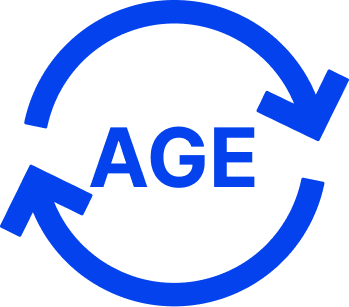Hawaii Homeschooling Laws and Resources
Hawaii is a wonderful state for homeschooling but has legal requirements for homeschool families. Here’s an overview of the state’s homeschool laws and some resources and answers to frequently asked questions to help you get started.
Homeschooling in Hawaii Overview
Notice of Intent Required: Yes
1 Option for Homeschooling: Home Education
Subject or Curriculum Requirements: Must be cumulative and sequential
Attendance Age Requirements: 5-18
Record-Keeping Requirements: Yes
Assessments or Evaluations Required: Yes
Proof of Immunization Required: No
Table of Contents
Hawaii Homeschooling Laws and Regulations
How to Start Homeschooling
Notice of Intent
Qualifications to Homeschool
Mandatory School Age
Subject and Curriculum Requirements
Annual Progress Report
Record-Keeping Requirements
Evaluations and Assessments
Required Immunizations
Resources for Homeschooling Families in Hawaii
Homeschool Groups and Co-ops
Sports Opportunities
Homeschool Field Trips
Special Education Homeschoolers
How Our Curriculum Can Help
Homeschool FAQ


How to Start Homeschooling in Hawaii
Hawaii’s homeschool requirements are a little more involved than some other states. Families who homeschool in Hawaii need to do the following:
- Submit an initial notice of intent to homeschool.
- Provide a “structured, cumulative, and sequential” curriculum.
- Keep required records on file.
- Submit annual progress reports to the local district.
- Participate in standardized testing at the required grade levels.
TIP: Home educators in Hawaii are responsible for all costs related to their child’s education.

Hawaii Notice of Intent to Homeschool
Parents and guardians must notify the principal of their local school of their intent to homeschool. They only need to do this once for each child as they begin homeschooling. File this notification before starting a homeschool program.
You may use Form 4140 as your notice of intent. Or, write a letter including your child’s name, birth date, grade level, address, and telephone number. A parent or guardian must sign and date the letter.
The district will return your form or letter with the signature of the principal and superintendent to acknowledge receipt. The school will keep a copy of this intent on file, and home educators should retain the original for their records.

Qualifications to Homeschool in Hawaii
By state law, parents and guardians don’t require any special qualifications to teach their children at home.
All you need to homeschool is a passion for your child’s education and a willingness to put in the time and effort it requires.

Mandatory School Age in Hawaii
Hawaii requires children to start school when they turn 5 by July 31st of that year. They must continue school until they are 18 as of January 1st of that school year.

Hawaii Homeschool Subject and Curriculum Requirements
Hawaii law says: “The curriculum shall be structured and based on educational objectives as well as the needs of the child, be cumulative and sequential, provide a range of up-to-date knowledge and needed skills, and take into account the interests, needs and abilities of the child.”
The law also says the curriculum may include (but does not require) the following:
- Elementary School: Language arts, mathematics, social studies, science, art, music, health, and physical education at a level appropriate for the child’s developmental stage
- Secondary School: English, social studies, mathematics, science, health, physical education, and guidance
TIP: Home educators have complete freedom to choose the instructional methods, curriculum programs, and educational materials that are right for them.
You can use the Hawaii Subject Matter Standards for guidance, but this isn’t required.

Hawaii Homeschool Annual Progress Reports
Home educators must submit an annual progress report for each of their students to the local school principal. This ensures children are making adequate progress for their age and ability. If they’re not, the principal will meet with the parents to create an improvement plan.
Hawaii homeschool annual assessments can be any one of the following:
- A score on a nationally-normed standardized achievement test showing appropriate grade level achievement for the child’s age; or
- Progress on a nationally-normed standardized achievement test equivalent to one grade level per calendar year, regardless of age; or
- A written evaluation by a certified Hawaii teacher stating that the child demonstrates appropriate grade level achievement or significant annual advancement in line with their abilities; or
A written evaluation by the parent or guardian, including a description of the child’s progress in each subject area included in the child’s curriculum, representative samples of the child’s work, and representative tests and assignments, including grades for courses if grades are given.

Hawaii Homeschool Record-Keeping Requirements
Hawaii’s law requires parents to keep a record of the planned curriculum. This must include the following:
- Start and end date of the homeschool program each year
- Number of instruction hours per week
- Subject areas included in your planned curriculum
- Methods used to determine mastery of these subjects
- A list of textbooks and other instructional materials that will be used (For books, list the author, title, publisher, and date of publication. For magazines, list the author, article title, magazine, date, volume number, and pages.)
TIP: You aren’t required to submit this record to the local district but will need to keep it on file at home.
Families can also assemble a portfolio of student work samples, report cards, assessments, and other supporting materials.

Hawaii Homeschool Assessments and Evaluations
Hawaii requires homeschoolers to take standardized tests in the same grades as their public school counterparts, which are grades 3, 5, 8, and 10.
TIP: Satisfactory test scores can serve as a homeschool student’s annual progress report.
Homeschool students can participate in the Statewide Testing Program at their local school in these grades at no cost. Or, the student and principal of their local school can agree on another form of criterion-referenced or norm-referenced test. In this case, the testing costs will be at the home educator’s expense.

Required Immunizations for Homeschoolers in Hawaii
Hawaii homeschoolers are not required to provide health records, TB tests, or proof of immunizations.

Homeschool Groups and Co-ops in Hawaii
Organizations and co-ops offer homeschool families support, social and educational opportunities, and often benefit every member of a homeschooling family. Here are two popular options in Hawaii:
- Christian Homeschoolers of Hawaii: Find like-minded families, attend an annual conference, participate in Homeschool 101 video sessions, and more.
- Hickam Homeschoolers (JBPHH) Hickam Homeschoolers is a Facebook-based community for current homeschoolers with access to Joint Base Pearl Harbor-Hickam (JBPHH), focused on connecting families through events and gatherings.
Find local community groups and co-ops on this helpful Hawaii Homeschool Resources page.

Sports Opportunities for Homeschoolers in Hawaii
The decision to let homeschool students participate in sports activities is left up to Hawaii’s local school districts. If you’re interested, contact them to learn their policies.
Otherwise, homeschoolers have plenty of great sports options. They can participate in competitive athletics through local homeschool sports leagues or community youth sports programs that welcome homeschool students. Here are some options in Hawaii:
| Group Name & Website | What Sports They Cover | What Area |
| YMCA Youth Sports | Varies by location | Throughout Hawaii |
| i9Sports | Flag football | Hawaii Kai/Honolulu |
| Little League | Baseball, softball | Throughout Hawaii |
| Hawaii Youth Soccer Association | Soccer | Throughout Hawaii |
| Island Youth Sports | Tackle, flag, and pylon football | The Big Island |

Hawaii Homeschool Field Trips
Hawaii is a wonderful state for planning field trips. Each island has unique experiences and culture just waiting for homeschool families to explore.
TIP: Consider teaming up with other homeschoolers to qualify for group discounts and special educational programs.
Hawaii is teeming with National Parks and historical sites, like Hawaii Volcanoes National Park and Pearl Harbor. Fourth grade students and their families can get free admission (restrictions apply) through the Every Kid Outdoors program. State parks are scattered across the islands like jewels, including Waimea Canyon and the Nā Pali Coast.
Want to learn more about Hawaiian culture? Check out the Bishop Museum, Iolani Palace in Honolulu, or the Kona Historical Society. The Maui Ocean Center lets you learn about sea creatures while you stay on dry land. Discover Hawaii’s important contributions to science at the ‘Imiloa Astronomy Center in Hilo. These are just a few of the options in the incredible Aloha State!

Special Education Homeschoolers
Hawaii recognizes homeschooling as a parent-initiated alternative to public and private education. To that end, there are a few requirements for homeschooling families.
Since it is a parent-initiated decision, providing services to homeschooled children with special needs is at the discretion of the local school district. The level and frequency of services may differ from that of a student enrolled in a public or private school, but parents may find a district willing to work with them to assist their student.
Doing research ahead of time about the school district’s outlook on providing special education services to students with special needs can help home educators create the best plan for their student.
Currently, no additional requirements or reporting are needed for homeschooling families of students with special needs.

Support Your Homeschool with ABCmouse and Adventure Academy
Our digital learning programs are designed by curriculum experts to assist your homeschool and children ages 2 through 13. ABCmouse is a comprehensive online educational platform for children ages 2-8, while Adventure Academy focuses on children ages 8-13. Both programs provide access to lessons on reading, language arts, math, sciences, social studies, and more. Learn more about how each program can enhance your homeschool below.
ABCmouse and Homeschooling
ABCmouse offers over 10,000 learning activities and more than 850 lessons for children, plus a large digital library of books and educational puzzles, songs, activities, and worksheets. The program encourages self-paced learning with motivating rewards and includes progress tracking, which allows home educators to monitor time spent on certain subjects and the number of activities completed.

Then just $14.99/mo. until canceled
As a paid add-on to regular subscriptions, home educators can access the Assessment Center, which allows parents and caregivers to test children on their knowledge, determine successes and struggles, and receive recommended lessons based on assessments.
ABCmouse provides a robust curriculum that can supplement other early learning lessons. It’s trusted resource that’s been downloaded over 10 million times and has a 4.5-star average out of 831.4K ratings.
Adventure Academy and Homeschooling
Adventure Academy combines an interactive world with a curriculum covering reading, language arts, math, science, and social studies. With quests, games, and educational videos and activities, learning becomes an epic journey that motivates kids to explore various topics.
For homeschooling families, Adventure Academy offers an engaging, flexible learning experience that can supplement other educational materials. The program features thousands of activities created by curriculum experts and covers all major academic domains.
Parents and caregivers can choose academic difficulty levels and track each child’s progress, seeing time spent in Adventure Academy, activities completed, and subjects studied.
Adventure Academy emphasizes key topics such as reading comprehension, vocabulary development, mathematical operations, fractions, world geography, American history, physical science, life science, earth science, and scientific inquiry.
For more information, visit AdventureAcademy.com.

Hawaii Homeschool FAQ
Is Hawaii a homeschool-friendly state?
Hawaii welcomes homeschoolers as long as they follow the required laws. These are more stringent than some other states and include annual progress reports and required standardized tests at certain ages. Parents and guardians are also responsible for all costs involved in homeschooling.
However, home educators in Hawaii have the freedom to choose their curriculum programs and set their own schedules. Families can control what their children learn and how they learn it. This makes Hawaii a fairly friendly homeschool state.
How do Hawaii homeschoolers receive diplomas or transcripts?
Homeschool students can earn a high school equivalency credential by passing the GED or HiSET exam. Learn more about these tests here.
TIP: Homeschool parents and guardians are responsible for creating transcripts for their children.
The more detailed your educational records over the years, the easier it will be to create these documents when needed.
Is unschooling legal in Hawaii?
Homeschool families in Hawaii must meet the state curriculum requirements set by law but are free to choose their instructional methods. This may include unschooling as long as the child makes satisfactory annual progress.
Legal Disclaimers
“The information and materials provided are for informational purposes only, and does not constitute legal, or other professional advice.
Any links provided to third-party resources are provided for convenience only. We do not sponsor or endorse, and are not affiliated with such parties, unless explicitly stated otherwise. We do not maintain or control these websites. Information presented on these sites may not be current or accurate – it is your responsibility to determine its accuracy and usefulness. By clicking on the links provided, you understand that you may be subject to additional terms and conditions and the privacy policies of such third parties.
Age of Learning makes no representation and assumes no responsibility for the accuracy of information contained on, or available through, this website, or its suitability for any purpose, and such information is subject to change without notice. You are encouraged to confirm any information obtained from or through this website with other sources, and review all information regarding any information with a trained legal professional.”















